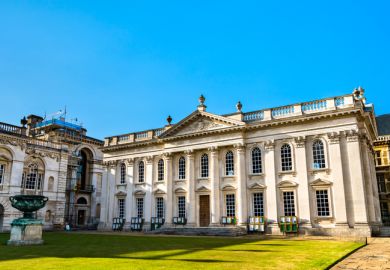Campus censorship is a “multi-headed Hydra” whose different interests and agendas “coalesce around the theme of cancellation”, a Melbourne webinar has heard.
Alan Davison, dean of the Faculty of Arts and Social Sciences at the University of Technology Sydney, said cancel culture was a multifaceted problem demanding a multifaceted response. “It’s supercharged through social media and the fear of cancellation. It’s supercharged by a neo-corporate university [culture] that doesn’t want dirty press. It’s supercharged [in] some disciplines by ideological conformity…amongst the academic cohort,” he said.
“Left alone to their own devices, [people] might happily stone or behead each other. But it serves their purposes to be on the same bus of cancellation at the same time.”
The webinar, part of a Heterodox Academy-funded project to map “viewpoint visibility” in Australian universities, examined the philosophical development of free expression and recent efforts to silence people at universities and elsewhere.
Examples included the sacking of James Cook University physicist Peter Ridd, personal attacks on high-profile epidemiologists during the pandemic, the hounding of Muslim Australian Yassmin Abdel-Magied and a campaign against New Zealand academics who differentiated between traditional knowledge and science.
The webinar also examined UK policy debates connected with the UK’s Free Speech Union and a University of Cambridge rule change requiring staff and students to be “respectful” of other people’s opinions.
Project leader Geoff Sharrock said it was difficult to obtain meaningful data about attitudes to free expression at universities. Surveys particularly struggled to distinguish whether self-censorship was driven by fear of retaliation or “positive” factors such as regard for others.
He said Australia’s Quality Indicators for Learning and Teaching had introduced new survey questions quizzing students on whether they – and staff – were free to express themselves. “I’m not sure you could tell, if you’re a student, whether academics are free to express their view or not in any meaningful way,” Dr Sharrock said, adding that the questions did not delve into factors like subjects’ sensitivity or where discussions were taking place.
Data from free market thinktank the Institute of Public Affairs, such as a 2019 finding that over 40 per cent of students felt unable to express their opinions at university, posed similar contextual issues. “Is that in class, in cafes or in a group? Is it something you strongly believe and want to discuss, or is it just a bit of polite reticence?”
Overseas research offers more context, with the Foundation for Individual Rights in Education’s 2020 survey of 20,000 US students finding they were relatively comfortable discussing controversial topics with classmates but wary of expressing unpopular opinions on social media.
While Heterodox Academy’s US Campus Expression Survey has revealed strong and stable support for universities’ role in facilitating untrammelled exchanges of views, it has also exposed an increasing tendency for students to stay silent for fear of being criticised by peers or causing “psychological harm”.
The UK’s Higher Education Policy Institute has found that the proportion of undergraduates who believe academics should be sacked for teaching material that “heavily offends some students” has more than doubled in five years.
In a blogpost, Dr Sharrock said his discussions had highlighted the “wider socio-cultural contexts” affecting free expression in Australian universities. “On many topics, public discourse in liberal democracies has become polarised and tribalised…University communities are not immune from these mass society dynamics.”
Register to continue
Why register?
- Registration is free and only takes a moment
- Once registered, you can read 3 articles a month
- Sign up for our newsletter
Subscribe
Or subscribe for unlimited access to:
- Unlimited access to news, views, insights & reviews
- Digital editions
- Digital access to THE’s university and college rankings analysis
Already registered or a current subscriber?








